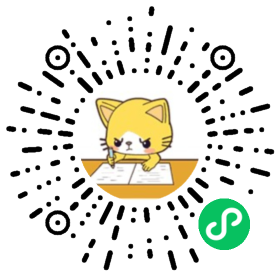【单选题】
过渡时期的总路线的主体是___
A. 实现社会主义工业化
B. 对个体农业的社会主义改造
C. 对个体手工业的社会主义改造
D. 对资本主义工商业的社会主义改造
查看试卷,进入试卷练习

微信扫一扫,开始刷题

答案
A
解析
暂无解析
相关试题
【单选题】
党的过渡时期总路线所指的过渡时期是___
A. 从中华人民共和国成立到国民经济恢复
B. 从国民经济恢复到社会主义改造基本完成
C. 从中华人民共和国成立到社会主义改造基本完成
D. 从中华人民共和国成立到党的十一届三中全会召开
【单选题】
在资本主义工商业的社会主义改造中,实行个别企业的公私合营是___
A. 初级形式的国家资本主义
B. 高级形式的国家资本主义
C. 合作化的最初表现形式
D. 合作化的最高表现形式
【单选题】
我国由新民主主义向社会主义转变的时期是指___
A. 1949年10月到1952年12月
B. 1953年1月到1956年12月
C. 1957年1月到1966年4月
D. 1949年10月到1956年12月
【单选题】
社会主义改造的和平性,体现在___
A. 对个体农业的社会主义改造中
B. 对个体手工业的社会主义改造中
C. 对资本主义工商业的社会主义改造中
D. 对官僚垄断资本的改造中
【单选题】
社会主义制度在我国确立的标志是___
A. 社会主义公有制成为我国社会的经济基础
B. 共产党领导的人民民主专政的政治制度的确立
C. 广大劳动人民成为掌握生产资料的国家和社会的主人
D. 集中力量发展社会生产力成为党和国家面临的主要任务
【单选题】
党提出过渡时期总路线的物质基础是___
A. 相对强大的国营经济的建立
B. 土改的完成和农业互助合作组织的建立
C. 以国家资本主义形式对工商业的调整
D. 强大的社会主义阵营的支持和援助
【单选题】
1956年我国在生产资料所有制的社会主义改造基本完成后,开始进入___
A. 新民主主义时期
B. 国民经济恢复时期
C. 从新民主主义向社会主义过渡时期
D. 全面建设社会主义时期
【单选题】
新民主主义革命在全国胜利及土地革命在全国完成后,国内的主要矛盾是___
A. 中华民族与帝国主义的矛盾
B. 农民阶级与地主阶级的矛盾
C. 工人阶级与资产阶级的矛盾
D. 人民大众与封建社会的矛盾
【多选题】
下面对资本主义工商业的社会主义改造经历的步骤表述正确的是___
A. 第一步主要是实行初级形式的国家资本主义
B. 第一步主要是实行委托加工
C. 第二步主要是实行统购包销和经销代销
D. 第二步主要实行个别企业的公私合营
E. 第三步是实行全行业的公私合营
【多选题】
关于社会主义改造说法正确的是___
A. 社会主义改造的基本完成,使我国社会经济结构发生了根本变化
B. 社会主义改造的基本完成,使我国社会的阶级关系发生了根本变化
C. 社会主义改造的基本完成,表明我国的一切剥削现象都已经被消灭
D. 社会主义改造的基本完成,表明社会主义制度已经基本确立
E. 社会主义改造的基本完成,表明我国的所有矛盾都得到解决
【多选题】
在资本主义工商业改造中,高级形式的国家资本主义包括了以下形式___
A. 委托加工、计划订货
B. 统购包销和代购代销
C. 个别企业的公私合营
D. 全行业的公私合营
E. 把私营企业的生产经营纳入国家计划的轨道
【多选题】
20世纪50年代中期,社会主义改造基本完成,标志着___
A. 社会主义制度在我国已经确立
B. 我国进入了社会主义初级阶段
C. 我国步入了社会主义改革时期
D. 我国实现了新民主主义向社会主义过渡
E. 我国进入了主义高级阶段
【多选题】
过渡时期总路线的“两翼”是指___
A. 巩固人民民主专政
B. 实现社会主义工业化
C. 实现对手工业的社会主义改造
D. 实现对农业的社会主义改造
E. 实现对资本主义工商业的社会主义改造
【多选题】
中国从新民主主义向社会主义过渡的主要条件是___
A. 近代中国资本主义经济及现代工业初步发展
B. 社会主义国营经济的壮大
C. 无产阶级政党的领导
D. 有力的国际因素
E. 人民民主专政国家政权的建立
【多选题】
有中国特色的社会主义改造道路的内容是___
A. 社会主义工业化和社会主义改造同时并举
B. 通过一系列逐步过渡的由低级到高级的社会主义改造形式
C. 和平改造特别是对资产阶级实现了和平赎买
D. 对内改造和对外开放相结合
E. 对经济制度的改造与对人的改造相结合
【多选题】
1949年10月1日,中华人民共和国成立标志着___
A. 中国新民主主义革命基本胜利
B. 中国进入了社会主义社会
C. 中国进入了新民主主义社会
D. 半殖民半封建社会的结束
E. 新民主主义向社会主义转变的开始
【多选题】
中国民族资产阶级在社会主义改造时期的两面性表现为___
A. 反帝反封建的革命性
B. 软弱性和妥协性
C. 剥削工人取得利润
D. 拥护宪法,愿意接受社会主义改造
E. 积极参加社会主义改造
【多选题】
20世纪50年代初,我国对个体农业进行社会主义改造的成功经验有___
A. 在土地改革基础上,不失时机地引导个体农民走互助合作的道路
B. 遵循自愿互利、典型示范、国家帮助的原则
C. 实行“三级所有,队为基础”的农村经济政策
D. 全面推广联产承包责任制
E. 采取从互助组到初级社再到高级社的逐步过渡形式
【多选题】
在新民主主义社会中,社会主义因素与资本主义因素之间不可避免地存在着___
A. 社会主义和资本主义的发展方向的斗争
B. 限制和反限制的斗争
C. 守法和违法的斗争
D. 改造和被改造的斗争
E. 革命和反革命的斗争
【多选题】
历史证明,我国的社会主义改造是十分成功的,因为___
A. 我国在一个几亿人口的大国中比较顺利地实现了如此复杂、困难和深刻的社会变革
B. 我国在这一变革中不仅没有造成生产力的破坏,反而促进了国民经济的发展
C. 我国在这一变革中取得了成功的经验,没有出现失误和偏差
D. 我国在这一变革中增强了人民的团结,得到了人民的普遍拥护
E. 我国在这一变革中没有引起巨大的社会动荡
推荐试题
【单选题】
某县在发生恐怖事件后,县公安局的下列处置措施不正确的是( )。
A. 决定进入紧急状态
B. 处置时,应当优先保护直接受到恐怖活动危害、威胁人员的人身安全
C. 立即进行处置,并向本级反恐怖主义工作领导机构报告
D. 由于尚未确定指挥长,由在场处置的公安机关职级最高的人员担任指挥员
【单选题】
下列属于《反恐怖主义法》中规定的恐怖活动的是( )。
A. 讨薪无果,为给包工头压力,李某、孙某二人合谋策划并放火烧毁工地材料仓库
B. 刘某感情失意,为泄愤而驾车冲撞广场上的行人
C. 张某在宗教场所做祷告
D. 黄某强迫妻子郑某在公共场所穿戴宣扬恐怖主义的服饰,尚不构成犯罪
【单选题】
根据《反恐怖主义法》的规定,下列说法正确的是( )。
A. 尚未确定指挥长,公安机关也未到达现场的,可以由在场处置的中国人民解放军军衔最高的人员担任现场指挥员
B. 尚未确定指挥长的,由在场处置的公安机关警衔最高的人员担任现场指挥员
C. 反恐怖主义工作领导机构负责人应当担任现场指挥长
D. 现场指挥员应当向指挥长请示、报告工作或者有关情况
【单选题】
下列有关反恐怖主义违法行为的说法正确的是( )。
A. 陆某极端宗教思想严重,胁迫儿子和儿媳以宗教仪式取代结婚登记。由于事关信仰,公安机关不能追究其法律责任
B. 李某以不信任当前教育体系为由,不让自己儿子接受义务教育,而在家亲自教育。公安机关可以涉嫌利用极端主义胁迫未成年人不接受教育的行为对李某作出行政处罚
C. 宋某强制他人在公共场所穿戴宣扬恐怖主义的服饰,由于情节轻微,公安机关可以对其作出行政处罚
D. 张某通过制作并散发宣扬恐怖主义图书的方式宣扬恐怖主义,无论情节是否严重,只能对其行政处罚
【单选题】
根据《反恐怖主义法》的规定,下列情形,可以申请保护措施的是( )。
A. 张某向公安机关举报李某策划实施恐怖活动,李某扬言报复
B. 杨某向公安机关提供郑某涉嫌犯罪的线索,郑某仍在潜逃中
C. 胡某在反恐部门工作,参与了一起涉恐案件的办理
D. 陶某为一起恐怖活动犯罪案件作证
【单选题】
根据《反恐怖主义法》的规定,下列表述不正确的是( )。
A. 明知他人有恐怖活动犯罪行为,在司法机关向其调查有关情况、收集有关证据时,拒绝提供的,由公安机关作出行政处罚
B. 因在恐怖活动犯罪案件中作证,本人的人身安全面临危险的,经本人提出申请,公安机关应当对其采取必要的保护措施
C. 国家反对一切形式的以歪曲宗教教义或者其他方法煽动仇恨、煽动歧视、鼓吹暴力等极端主义,消除恐怖主义的思想基础
D. 法律禁止制作、传播宣扬恐怖主义、极端主义的物品,但是并不禁止持有这些物品
【单选题】
新闻媒体等单位和个人不得有以下( )行为:①编造、传播虚假恐怖事件信息;②报道、传播可能引起模仿的恐怖活动的实施细节;③发布恐怖事件中残忍、不人道的场景;④未经批准,报道、传播现场应对处置的工作人员、人质身份信息和应对处置行动情况的。
A. ②③
B. ②③④
C. ①②③④
D. ①③④
【单选题】
A省的甲市、乙市、丙市夜间发生连环爆炸的恐怖事件,下列处置不正确的是( )。
A. A省反恐怖主义工作领导机构决定甲市进入紧急状态
B. A省反恐怖主义工作领导机构统一发布恐怖事件的应对处置信息
C. A省反恐怖主义工作领导机构确定甲市、乙市的公安局局长作为处置指挥长
D. A省反恐怖主义工作领导机构决定由甲市、乙市、丙市的公安机关封锁爆炸现场和周边道路
【单选题】
某县政府设立反恐怖主义工作领导机构,下列人员中,不可以担任指挥长的是( )。
A. 该县反恐怖主义工作领导机构成员单位负责人
B. 该县公安机关负责人
C. 该县反恐怖主义工作领导机构负责人
D. 该县人民政府负责人
【单选题】
A市公安机关民警小沈和小陈正在调查恐怖活动嫌疑,以下做法中,不正确的是( )。
A. 可以通知了解情况的人员到公安机关或者其他地点接受询问,但其他地点只限于被调查人员所在单位、住处或者其提出的地点
B. 可以禁止嫌疑人员与特定的人员会见或者通信,期限不得超过3个月
C. 可以采取技术侦察措施
D. 可以提取嫌疑人员的血液、尿液、脱落细胞等生物样本
【单选题】
根据《反恐怖主义法》的规定,下列有关安全防范措施表述不正确的是( )。
A. 长途客运业务的经营者不得向身份不明的客户提供服务
B. 从事批发、零售各类刀具的单位和个人需要对客户进行实名登记
C. 生产单位应当对民用爆炸物品添加安检示踪标识物
D. 邮政、快递等物流运营单位应当对客户身份进行查验
【单选题】
根据《反恐怖主义法》的规定,下列说法错误的是( )。
A. 恐怖活动组织,是指3人以上为实施恐怖活动而组成的犯罪组织。恐怖活动人员,是指实施恐怖活动的人和恐怖活动组织的成员
B. 被认定的恐怖活动组织和人员对认定不服的,可以通过国家反恐怖主义工作领导机构的办事机构申请复核。复核决定为最终决定
C. 通过恐吓的手段,胁迫国家机关,以实现其政治目的的主张和行为,可以被认定为恐怖主义
D. 认定恐怖组织和人员的机构只有国家反恐怖主义工作领导机构
【单选题】
恐怖事件发生后,下列应对措施中,错误的是( )。
A. 卫生、民政等主管部门为恐怖事件受害人员及其近亲属提供心理、医疗等方面的援助
B. 当地人民政府向失去基本生活条件的受害人员及其近亲属及时提供基本生活保障
C. 公安机关对恐怖事件立案侦查,依法追究恐怖活动组织、人员的刑事责任
D. 公安机关在恐怖事件发生后立即发布应对处置信息,确保公民知情权
【单选题】
对于恐怖活动组织和人员的认定,下列说法不正确的是( )。
A. 公安机关对于需要认定恐怖活动组织和人员的,应当向同级反恐怖主义工作领导机构提出申请
B. 金融机构对国家反恐怖主义工作领导机构的办事机构公告的恐怖活动组织和人员的资金或者其他资产,应当立即予以冻结
C. 有管辖权的中级以上人民法院在审判刑事案件的过程中,可以依法认定恐怖活动组织和人员
D. 被认定的恐怖活动组织和人员对认定不服的,可以通过国家反恐怖主义工作领导机构的办事机构申请复核
【单选题】
根据《反恐怖主义法》的规定,甲县公安机关在调查恐怖活动嫌疑时,对恐怖嫌疑人员黄某采取约束措施,下列说法错误的是( )。
A. 情况复杂,经上一级公安机关负责人批准,约束措施的期限可以延长1个月
B. 约束措施的期限不得超过3个月
C. 甲县公安机关可以采取电子监控、不定期检查等方式对黄某遵守约束措施的情况进行监督
D. 在采取约束措施期间发现犯罪事实的,应当立案侦查
【单选题】
甲县公安机关发现辖区某公司内聚集了大量人员在参与极端主义活动,派员前往处置。下列做法不正确的是( )。
A. 收缴宣扬极端主义的书籍、画册、海报
B. 责令立即停止,强行带离现场并登记身份信息
C. 查封该活动场所
D. 对参与人员一律予以行政处罚
【单选题】
根据《反恐怖主义法》的规定,下列关于重点目标的管理单位说法不正确的是( )。
A. 应当定期向公安机关和有关部门报告防范措施落实情况
B. 对进入重点目标的人员、物品和交通工具进行安全检查中发现违禁品和管制物品,应当立即向公安机关报告,但无权扣留
C. 应当对重要岗位人员进行安全背景审查。对有不适合情形的工作人员,调整工作岗位,并将有关情况通报公安机关
D. 应当安装公共安全视频图像信息系统,对视频图像信息保存期限不得少于90日
【单选题】
根据《反恐怖主义法》的规定,下列关于技术侦察的说法正确的是( )。
A. 甲县公安机关在侦查恐怖犯罪案件中,为获取有关证据,经过严格的批准手续,可以使用技术侦察措施
B. 甲县公安机关依法采取技术侦察措施获取的材料,只能用于应对处置,不可以作为刑事诉讼的证据
C. 只有公安机关、国家安全机关、军事机关可以采取技术侦察措施
D. 技术侦察措施的适用对象是犯罪嫌疑人、被告人以及与犯罪活动直接关联的人员
【单选题】
根据《反恐怖主义法》的规定,下列关于调查恐怖活动嫌疑措施的说法不正确的是( )。
A. 公安机关调查恐怖活动嫌疑,可以通知了解有关情况的人员到公安机关或者其他地点接受询问
B. 公安机关调查恐怖活动嫌疑,可以直接拘留嫌疑人员
C. 公安机关调查恐怖活动嫌疑,经县级以上公安机关负责人批准,可以责令恐怖活动嫌疑人员不得参加大型群众性活动或者从事特定的活动
D. 公安机关调查恐怖活动嫌疑,经县级以上公安机关负责人批准,可以查询嫌疑人员存款、汇款等财产
【单选题】
县级以上地方人民政府公安机关正职领导职务的提名,应当( )。
A. 事先征得上一级公安机关的同意
B. 事先征求所属人民政府的意见
C. 事先征求上一级公安机关的意见
D. 事先征得所属人民政府的同意
【单选题】
根据《公安机关组织管理条例》的规定,下列说法不正确的是( )。
A. 民警江某因公致残且部分丧失工作能力,不得辞退
B. 民警付某连续两年年度考核被确定为不称职,应当予以辞退
C. 民警孔某身患疾病尚在医疗期内,不得辞退
D. 民警姜某在1年内旷工累计已达15天,应当予以辞退
【单选题】
根据《公安机关组织管理条例》的规定,下列关于公安机关性质的说法不正确的是( )。
A. 公安机关具有维护国家安全及社会治安秩序的职责
B. 公安机关是带有武装性质的人民民主专政的重要工具
C. 公安机关具有预防、制止和惩治违法犯罪活动的职责
D. 公安机关只是国家重要的刑事司法力量
【单选题】
根据《公安机关组织管理条例》的规定,下列说法错误的是( )。
A. 彭某拟任命为甲县公安局乙派出所副所长,由甲县公安局决定
B. 邓某系某区公安分局一级警长,该职务属于公安机关内设执法勤务机构警官序列
C. 曹某系某县公安局办事员,该职务属于公安机关内设综合管理机构警员序列
D. 曾某被提名为甲省乙市公安局局长,应当事先征得甲省公安厅的同意
【单选题】
根据《治安管理处罚法》的相关规定,下列情形中,不应按照赌博予以治安管理处罚的是( )。
A. 乙向他人销售具有博彩功能的游戏机,他人从事娱乐活动
B. 丙参与以营利为目的的聚众赌博
C. 甲参与以营利为目的的计算机网络赌博
D. 丁采取不报经国家批准,擅自发行、销售彩票的方式,为赌博提供条件,尚不够刑事处罚

